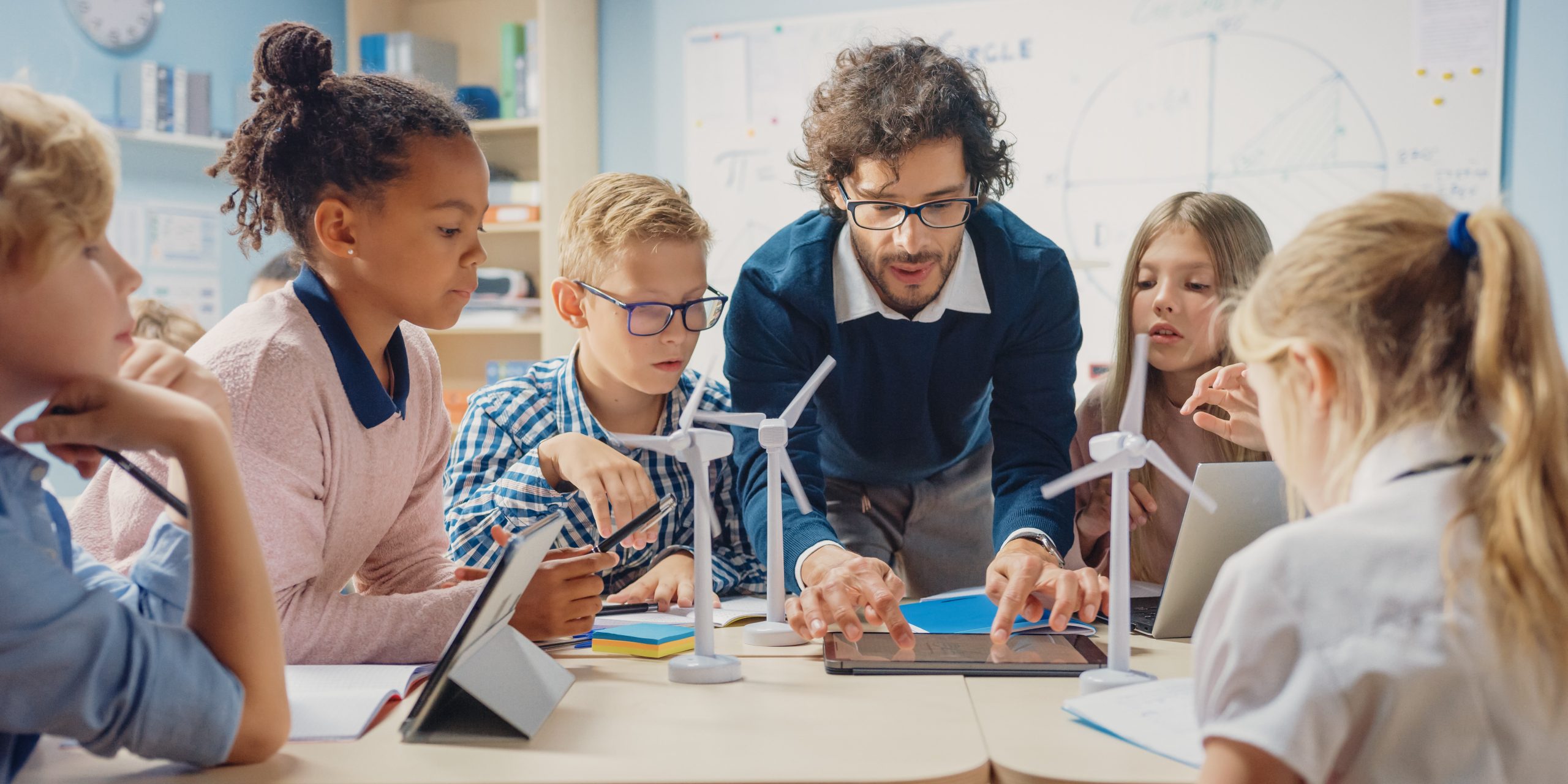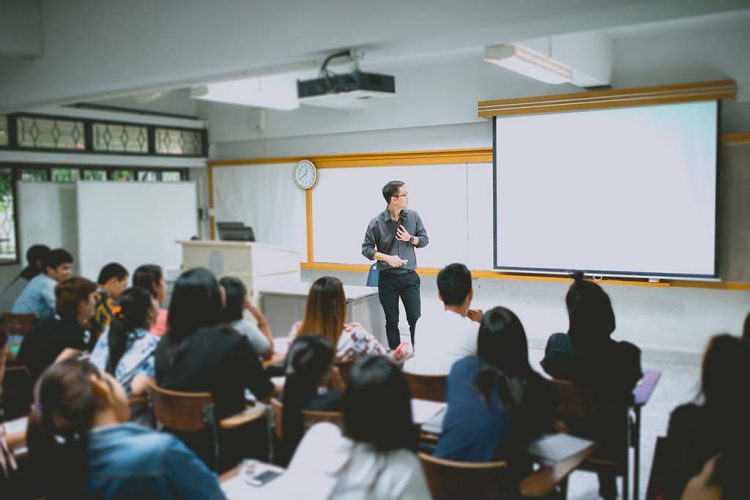Find the Best Primary Science Tuition Singapore for Enhanced Learning
Wiki Article
Discovering the Various Mentor Strategies in Main Scientific Research Education And Learning Today
Inquiry-based learning, hands-on experiments, and the combination of innovation are redefining just how teachers engage young minds. Furthermore, joint methods and separated instruction are being used to cater to the diverse requirements of pupils, improving both engagement and understanding.Inquiry-Based Discovering
Inquiry-Based Understanding (IBL) is an instructional approach that urges students to check out clinical concepts through wondering about, examination, and hands-on testing. This approach highlights the role of trainees as energetic individuals in their understanding, advertising crucial reasoning and analytic skills. By engaging with real-world concerns, students end up being interested and inspired, which improves their understanding of clinical concepts.In IBL, educators act as facilitators, assisting students as they browse their questions as opposed to delivering info directly. This student-centered approach enables differentiation, fitting numerous learning speeds and styles. Trainees establish skills in formulating theories, making experiments, and evaluating information, which are important for scientific proficiency.
In addition, IBL cultivates collaboration among trainees, encouraging them to share searchings for and ideas. This cumulative query promotes social skills and a feeling of area within the class. The procedure of inquiry encourages strength, as students find out to embrace failing as a tipping stone toward understanding.
Hands-On Experiments
Hands-on experiments are an important component of efficient scientific research education and learning, complementing the principles of inquiry-based discovering. These experiments allow trainees to involve straight with clinical principles, promoting a much deeper understanding via experiential learning. By manipulating products and observing end results, young students can realize abstract theories in substantial methods.Such activities advertise critical thinking and problem-solving abilities, as trainees hypothesize results, conduct experiments, and examine outcomes. This process urges them to ask inquiries, refine their understanding, and create a scientific mindset. Hands-on experiments can be tailored to varied understanding designs, making certain that all students have the opportunity to involve meaningfully with the content.
Additionally, hands-on experiments commonly encourage partnership amongst peers, advertising team effort and communication abilities. Operating in groups makes it possible for trainees to share concepts, talk about findings, and gain from one another, which improves their total academic experience.
Integrating hands-on experiments right into the key scientific research educational program not only enriches the discovering setting but likewise grows a long-lasting passion in scientific research. By proactively getting involved in their education, pupils are most likely to create a passion for clinical inquiry that expands beyond the class.

Modern Technology Assimilation
Incorporating modern technology right into key science education and learning has actually come to be significantly important in promoting pupil interaction and boosting learning end results. Using digital tools, such as interactive simulations, digital laboratories, and educational software application, offers students with opportunities to check out clinical principles in ingenious means. These sources assist in a deeper understanding of intricate topics by allowing students to envision and adjust variables that would certainly be unwise in a traditional classroom setup.In addition, innovation assimilation motivates customized finding out experiences. Trainees can advance at their very own rate, revisiting challenging concepts with multimedia resources, which provide to different understanding styles. This flexibility not just supports private growth but additionally cultivates a sense of autonomy in students.
Furthermore, technology functions as a bridge to real-world scientific research, connecting pupils with current research and professional payments. Access to clinical journals and online data sources widens students' viewpoints on clinical inquiry and fosters essential thinking skills.
Collaborative Understanding
Collective understanding plays an important role in main scientific research education and learning by cultivating team effort and interaction abilities among pupils. This approach encourages learners to function together, share knowledge, and participate in analytical, which improves their understanding of clinical principles. By joining group activities, students discover to express their concepts, listen to diverse viewpoints, and bargain options, every one of which are important abilities in both scholastic and real-world contexts.Research suggests that collective understanding can bring about increased inspiration and engagement in scientific research topics, as pupils discover satisfaction in common experiences (primary science tuition Singapore). Furthermore, this technique prepares pupils for future collaborative endeavors, furnishing them with the skills required for effective team effort in college and specialist atmospheres. Inevitably, welcoming collaborative discovering in main science education can significantly enrich the understanding experience and promote a deeper understanding of scientific inquiry
Differentiated Guideline

Distinguished instruction can materialize in different methods, such as varying the web content, procedures, or items of understanding. As an example, educators might use tiered projects that offer varying degrees of intricacy, enabling students to operate at their particular readiness levels. In addition, adaptable organizing techniques can assist in collaboration among students with various capabilities, fostering peer understanding.
Assessment plays a critical function in this method, as it informs direction and assists educators comprehend each trainee's special demands. Formative assessments, such as tests and observations, can direct educators in readjusting their techniques to enhance discovering end results. primary science tuition Singapore. Eventually, by carrying out separated guideline in key scientific research education, instructors can grow a more equitable and reliable understanding atmosphere, encouraging all pupils to reach their complete possibility in comprehending clinical phenomena
Verdict
In summary, the diverse mentor methods in key scientific research education and learning, including inquiry-based learning, hands-on experiments, innovation combination, collaborative discovering, and differentiated instruction, collectively add to a much more effective discovering environment. page These methods advertise vital thinking, analytical abilities, and a deeper understanding of clinical principles. By executing these approaches, educators can produce supportive and appealing classrooms that address the different requirements of trainees, eventually fostering a long-lasting interest in science and boosting academic success.Inquiry-Based Learning (IBL) is a pedagogical method that urges pupils to explore scientific concepts through questioning, investigation, and hands-on experimentation.Collaborative knowing plays an essential role in main science education by fostering team effort and interaction abilities among trainees.Research shows that joint discovering can lead to enhanced inspiration and interaction in scientific research subjects, as pupils locate satisfaction in shared experiences.In cultivating an inclusive learning atmosphere, distinguished instruction arises as a vital method to fit the varied demands and abilities of students in key best site science education. Eventually, by executing set apart guideline in key science education and learning, educators can cultivate a more equitable and reliable understanding environment, encouraging all pupils to reach their complete potential in recognizing scientific sensations.
Report this wiki page